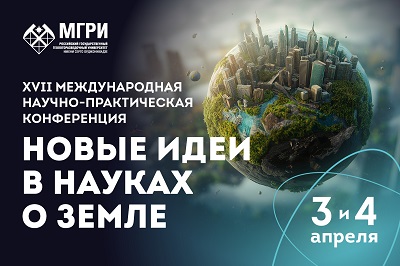Organization of well development with multistage hydraulic fracturing
https://doi.org/10.32454/0016-7762-2025-67-3-24-35
EDN: EMFRLW
Abstract
Background. Challenge in developing wells with hard-to-recover reserves is monitoring the well’s near-wellbore zone, specifically, selecting operating modes that will ensure sufficient flow of hydraulic fracturing fluid, proppant, and hydrocarbon mixture without rock failure. Rock failure is the most unpredictable factor due to the low understanding of the processes in the near-wellbore zone. Rock failure results in the formation of varying sizes rock fragments. This rocks lead to deterioration or loss of well productivity by penetrating and filling the wellbore. The entry of rock into the wellbore leads to the risk of damage to wellhead equipment and clogging of well lines. It is important to identify which well testing modes cause the greatest stress on the pore space near the wellbore zone. After this, recommendations for well operation can be developed.
Aim. To identify conditions causing maximum stresses in the pore space near the wellbore wall, which can lead to its collapse. On this basis, to develop recommendations for safe well operation.
Materials and methods. The study was conducted using the results of core analysis, constructed geomechanical models, and actual flow rate/pressure measurements during well completion and production. Methods for calculating pore space collapse pressure along the wellbore were developed, including fragment transport calculations.
Results. The proposed approach ensures control over rock collapse pressure at any bottomhole pressure drawdown rate, minimizing collapse risks. This significantly reduces accident rates and operational complications during well completion and production.
Conclusion. The research analyzed extensive well completion and production data, investigating the causes of fragment generation. An original methodology for calculating permissible bottomhole pressures and optimal well operation modes was developed. Following implementation, no further incidents of rock collapse or surface fragment transport were observed. A program for further methodology refinement and scaling was established.
Keywords
About the Authors
T. I. GataullinRussian Federation
Timur I. Gataullin — Deputy Chief Geologist
7, Pozharnykh i spasateley str., Tyumen 625031
tel.: +7 (3452) 680-876
Competing Interests:
the authors declare no conflict of interest
A. Yu. Smirnov
Russian Federation
Artem Yu. Smirnov — Head of the YAMAL Development Department
7, Pozharnykh i spasateley str., Tyumen 625031
tel.: +7 (3452) 680-470
Competing Interests:
the authors declare no conflict of interest
E. V. Kryuchkova
Russian Federation
Ekaterina V. Kryuchkova — Chief Specialist of the YAMAL Development Department
7, Pozharnykh i spasateley str., Tyumen 625031
tel.: +7 (3452) 680-432
Competing Interests:
the authors declare no conflict of interest
References
1. Baklashov I.V. Geomechanics. Moscow: Publishing House of Moscow State Mining University, 2004. Vol. 1. Fundamentals of Geomechanics. 208 p. (In Russ.).
2. BasnievK.S., Kochina I.N. MaksimovV.M. Underground hydrodynamics. Moscow: Nedra, 1993. 416 p. (In Russ.).
3. Basniev K.S. Encyclopedia of the gas industry. 4th ed. Transl. from French; Moscow: TVANT, 1994. 684 p. (In Russ.).
4. Brusilovsky A.I.. Phase transformations during development of oil and gas fields. Moscow: Graal, 2002. 575 p. (In Russ.).
5. Dobrynin V.M., Wendelshtein B.Yu., Kozhevnikov D.A. Petrophysics. Moscow: Nedra, 1991. 368 p. (In Russ.).
6. McPhee C., Reed J. Zubizarreta I. Core analysis: a best practice guide, Moscow — Izhevsk: Institute for Computer Research, 2018. 924 p. (In Russ.).
7. Nikolaevsky V.N. Geomechanics and fluid dynamics. Moscow: Nedra, 1996. 447 p., ill. ISBN 5-247-03675- 1 (In Russ.).
8. Levich V.G. Physicochemical hydrodynamics. — 3rd ed., corrected and supplemented. — M.–Izhevsk: Institute of Computer Research, 2016. 686 p. (In Russ.).
9. Leibenzon, L.S. Movement of natural liquids and gases in a porous medium. Mpscow — Leningrad: OGIZ. State publishing house of technical and theoretical literature, 1947. 244 p. (In Russ.).
10. Tiab D., Donaldson E.C. Theory and practice of measuring reservoir rock and fluid transport properties. Moscow: Premium Engineering LLC, 2009. 868 p. (In Russ.).
11. Khasanov M.M., Bulgakova G.T. Nonlinear and nonequilibrium effects in rheologically complex media. Moscow — Izhevsk: Institute of Computer Research, 2003. 288 p. (In Russ.).
Review
For citations:
Gataullin T.I., Smirnov A.Yu., Kryuchkova E.V. Organization of well development with multistage hydraulic fracturing. Proceedings of higher educational establishments. Geology and Exploration. 2025;67(3):24-35. (In Russ.) https://doi.org/10.32454/0016-7762-2025-67-3-24-35. EDN: EMFRLW








































